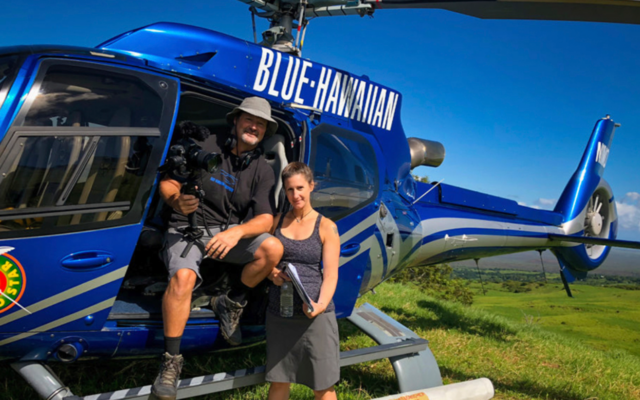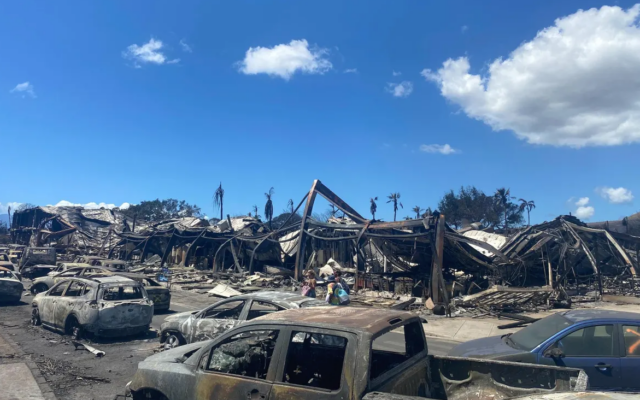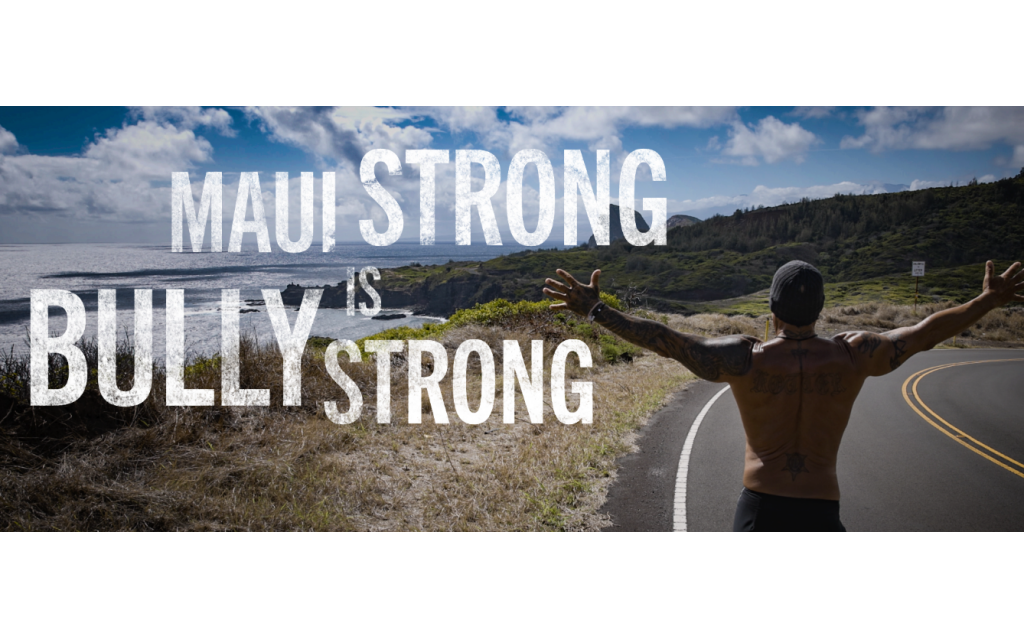Filmmaker Finds High Holiday Comfort in Recovery Efforts
Prize-winning documentarian Leah Warshawski and her husband, Todd, past guests at the AJFF, have seen firsthand her community’s resourcefulness.

Leah Warshawski was on what was planned to be a month-long camping trip in Idaho with her husband, Todd, when she first heard of the fires in Maui on Aug. 8. Fires had also sprung up near her home in Kula, in the hills near the center of the island, and her neighbors were calling to see if they could help remove important items from her property.
Fortunately, the flames never reached her home and two days later she was on the island to see firsthand the damage that the fires, fed by dry grasses and high winds, had done to the island.
Although her home was spared, 20 homes in her neighborhood were destroyed and, just over 20 miles away in the town of Lahaina, where thousands once lived was just ashes, with only a single building stood untouched along the shore.
Earlier this month, the death toll from the fires stood at 115, with half the dead still unidentified. Fifty-six are still unaccounted for. More than 2,000 buildings were destroyed, property losses are estimated to be $5.5 billion. The fires on Maui are among the half-dozen deadliest blazes in U.S. history.
Hawaii’s governor has tapped $100 million from a federal program that provides temporary assistance to needy families. Another $25 million has been made available in grants of $10,000 and $20,000 to help those businesses that survived to stay solvent.

Donations have flowed into local chapters of the American Red Cross, the Maui United Way, and other local charities, but the fires have only magnified what Warshawski sees as the chronic inequities that have long existed on the island.
“There are a lot of people who have nowhere to go and aren’t sure where they’re going to go. There was a housing crisis before this happened. And now the housing crisis here has just been highlighted. The homelessness was, you know, kind of hidden in plain sight before this. And now that’s just been amplified.”
Warshawski, a prize-winning documentarian whom the AJT interviewed at the Atlanta Jewish Film Festival several years ago, is still dazed by all that has happened in the last month.
“I think the whole island is still in shock. It’s kind of a nightmare that you wake up to every day. We have a lot of friends who live there and lost everything. What’s more traumatic about it, I think, is that people were trapped in the way that it happened. There have been small fires on Maui before. There are fires in Hawaii all the time. But for this magnitude of catastrophe is just hard to grasp.”
Some of those who survived have found temporary lodging in the island’s hotels, many of which were untouched by the flames, while some are living in tents and others in their cars. She says the latest estimate is that 12,000 persons have been displaced.

Among them is a surfing instructor, Robert “Bully” Kotter, who lived in Lahaina and who, prior to the fire, Warshawski profiled for a short film. The idea behind the film was how, during the COVID pandemic, the surfer taught young people an appreciation for the sport and for the ocean waters that surround the island, as a way of helping them through the troubles caused by the virus.
I think the whole island is still in shock. It’s kind of a nightmare that you wake up to every day. We have a lot of friends who live there and lost everything. What’s more traumatic about it, I think, is that people were trapped in the way that it happened. There have been small fires on Maui before. There are fires in Hawaii all the time. But for this magnitude of catastrophe is just hard to grasp.
Now, he is in trouble. The fire consumed all of his possessions and he is homeless. A short clip from the documentary was shown on a recent broadcast of ABC’s “Good Morning, America” and she is struggling to update the film she made to give others some idea of how the tragic fire has interrupted the lives of those who, until now, had been so generous to others.
“There’s just a big sense of uncertainty and anxiety. It’s a really difficult mix,” Warshawski says. “And at the same time, there’s a lot of good happening. The community has really come together. I mean, we pretty much dropped everything that we were doing, everything that was normal life when this happened, and now we’re trying to figure out how to get back to some sense of normalcy.”
Despite the destruction, Warshawski and her husband aren’t going anywhere. The experience of living through the last month when so many have spent day after day helping others, providing food and shelter, and care for families and their children, have convinced them that this is a community they have no intention of abandoning.
As she approaches these High Holidays, what she has seen in the generosity of her neighbors has provided her with a rich spiritual sense of gratitude.
“Even though we’ve been through this immense catastrophe,” Warshawski says, “we have also been reminded of how good people can be.”



comments